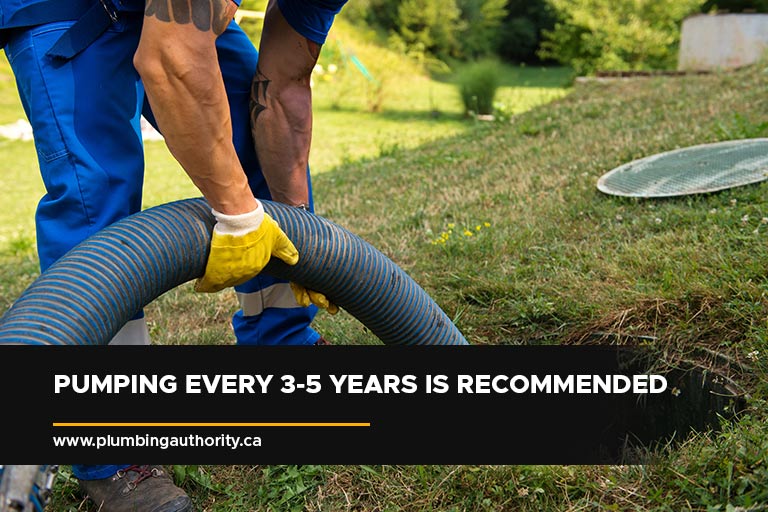
As a Violet Hill homeowner who relies on a septic system, you understand its importance in managing your household’s wastewater. These systems are a lifeline for homes not connected to the main sewer network. Although septic systems are generally reliable and long-lasting, unexpected emergencies sometimes occur. A failing septic system can be a nightmare scenario, but preparation helps.
This comprehensive guide aims to arm you with the knowledge and resources to handle any septic emergency confidently. Whether you’re a seasoned homeowner or new to septic systems, this guide will help you navigate the situation and reduce the stress associated with such an event.
Signs You Need Emergency Septic Pumping
Knowing the early warning signs of a septic disaster can mean the difference between a quick fix and a major cleanup. Pay attention to these red flags:
- Slow drains: If water starts pooling in your sinks, showers, or bathtubs and seems reluctant to drain, it could indicate a clog or a full septic tank. A clogged drain might be a localized issue, but slow drainage throughout your house suggests a problem with the septic system’s ability to handle the wastewater volume.
- Foul odours: A persistent, unpleasant sewage smell, especially near your drain field or yard, is a definite cause for concern. Sewage odours shouldn’t be noticeable inside your home under normal circumstances. If you detect sewage smells coming from drains, vents, or floor cracks, treat it as a red flag.
- Gurgling noises: Unusual gurgling sounds coming from your toilets, sinks, or plumbing fixtures could signal a blockage or backup in the septic system. These gurgling sounds occur because air is trapped in the pipes due to a clog or a full tank preventing proper ventilation.
- Standing water: Soggy patches in your yard, particularly above the septic system or drain field, indicate that wastewater isn’t draining correctly. This can be caused by a clogged drain field, a full septic tank, or even a broken pipe.
- Sewage backup: This is the most serious and alarming sign. Sewage backing up into your home through drains demands immediate action. If you encounter sewage backing up into your bathtub, toilet, or drains, avoid using any plumbing fixtures and call a septic professional immediately.
What to Do During a Septic Emergency

Know where your septic tank is located
A septic emergency calls for quick thinking and decisive action. Follow these guidelines:
- Conserve water: A full septic tank can’t accept more water. Stopping laundry, dishwashing, and long showers immediately reduces the amount of wastewater entering the system, buying you precious time while you wait for professional help.
- Locate your septic tank: Finding your tank quickly is crucial, especially in an emergency. If you don’t have a diagram, consulting your property records provides a starting point. In the worst-case scenario, calling a septic professional can help you locate the tank and assess the damage.
- Call a reputable professional: Septic emergencies often involve complex problems. Attempting DIY repairs could worsen the situation or create safety hazards. A skilled septic professional has the tools, experience, and safety protocols to diagnose and fix the issue correctly.
- Stay away from the drain field: Saturated soil above your drain field might collapse under weight. This is particularly dangerous if you have children or pets. Staying clear of the compromised area ensures the safety of everyone involved.
- Ventilate the house: A sewage backup often means unpleasant odours. Opening windows and doors helps air out your home, making it more bearable while waiting for the septic professionals. This also helps dissipate any harmful gasses that might have accumulated.
- Prepare for the professionals: Clearing the area around your septic tank speeds up the service process. Removing vehicles, yard debris, or structures helps professionals access the tank quickly and start the pumping and repair work.
- Document the event: Noting the date, time, and observations about the backup helps track the frequency of issues. This information can be vital to the septic professionals in pinpointing the underlying problem and can be crucial if you need to file an insurance claim for damages.
Preventing Future Septic Emergencies

Pumping every 3-5 years is recommended
The adage “prevention is better than cure” applies to septic systems. Adopt these habits to keep yours healthy and trouble-free:
- Regular pumping: A septic tank acts as a settling basin, separating solids from liquids. Routine pumping removes the accumulated sludge, preventing it from overflowing into the drain field and causing blockages or system failure. Following the 3–5-year guideline keeps things running smoothly.
- Conserve water: A septic system has a limited capacity. Excessive water use inundates the tank, giving it less time to process waste. This burdens the drain field and can lead to premature failure. Fixing leaks and being water-conscious protects your septic system and saves money on utility bills.
- Be mindful of what goes down: Your septic tank relies on bacteria to break down waste. Fats, oils, grease (FOG), harsh chemicals, and non-flushable disrupt this process. FOG can solidify and clog pipes, chemicals kill beneficial bacteria, and non-flushable don’t degrade, taking up tank space.
- Landscaping choice matters: Large trees and shrubs put down extensive root systems in search of water. If planted near your septic system, these roots can invade, crack, or displace pipes and even the tank itself, causing blockages and leaks. Prioritize shallow-rooted plants and grasses above your septic system and drain field.
- Protect the drain field: Your drain field is the final processing step, filtering wastewater before it returns to the environment. Compacting the soil with vehicles or structures reduces its ability to absorb, causing wastewater to pool on the surface or back up into your home.
- Regular inspections: A septic professional has the tools and experience to assess components not visible to the untrained eye. They’ll measure sludge levels, check baffles, inlets, outlets, and drain field conditions, and detect early signs of trouble that could prevent major repairs.
- Invest in quality additives: Enzyme or bacterial additives sometimes help improve septic function, but they’re not a substitute for pumping or repairs. Always consult a septic professional to discuss whether additives are right for your specific system and if so, which products they recommend.
Septic emergencies, while unpleasant, can be managed successfully. By understanding the warning signs, knowing how to respond quickly, and prioritizing proper maintenance, you can ensure your septic system serves you reliably for many years to come. If you’re facing a septic crisis in Violet Hill, don’t hesitate; call the experts at Plumbing Authority (647 992-7473) and restore your home’s sanitation quickly and effectively.




